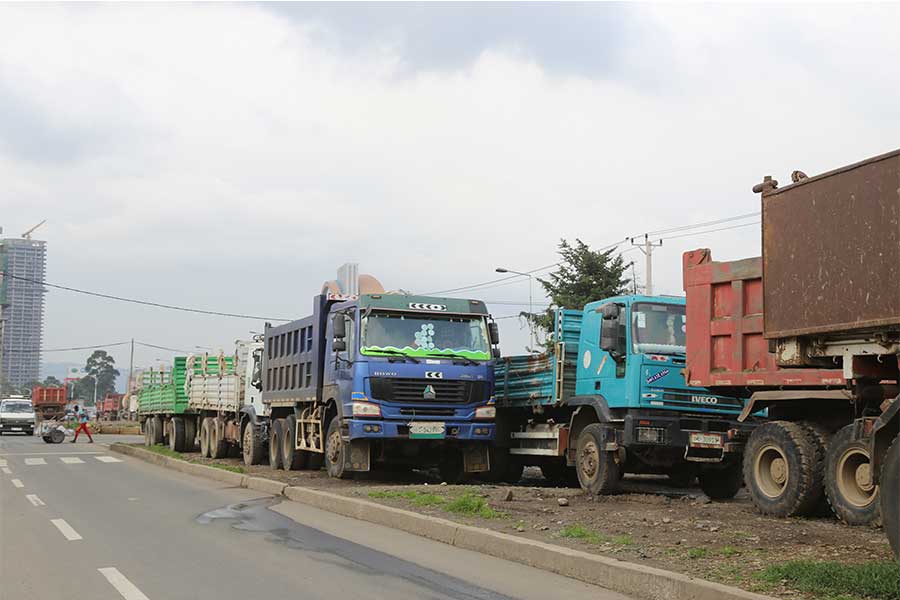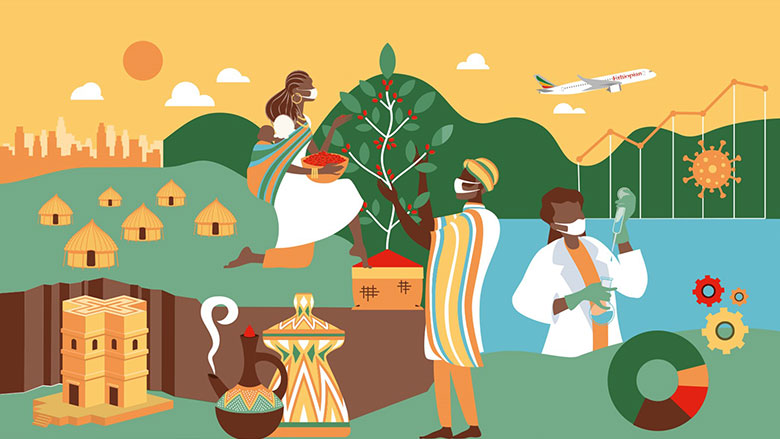
Agenda | Jul 20,2019
Jun 22 , 2019
By Yonas Biru (PhD)
Yonas Biru (PhD), a former deputy global manager of the International Comparison Program at the World Bank, argues international adoptions, with all their problems, provide an infinitely better option than Ethiopian orphanages and the streets of our impoverished cities. He can be reached at biruyonas@yahoo.com
In recent years, international adoption has declined due to policy changes in the five highest foreign adoption countries, namely Russia, China, Guatemala, Ethiopia and South Korea. Russia, Guatemala and Ethiopia banned adoption altogether, while China and South Korea made international adoption more difficult.
According to adoption.com, China’s international adoption declined after the government introduced “maximum body mass index, disease status and history, education level, marriage duration and a net worth that made many prospective adoptive families ineligible.” The maximum body mass index criterion reflects Chinese cultural aversion to heavy people. If you want to adopt a Chinese child, forget it if you or your spouse is overweight.
The case of South Korea is different. Korea’s per capita income is over 30,000 dollars, higher than some European countries. The national pride of being able to care for their own children played a role in restricting international adoption. Despite the noted restrictions, in 2017, China and South Korea were the two countries that accounted for the largest number of cases of adoption by American families.
The reasons behind Russia’s, Guatemala’s and Ethiopia’s adoption bans are different. The Magnitsky Act triggered Russia's ban on American families; an act signed into law by President Obama to sanction some Russian officials and oligarchs who were accused of human rights violations. Guatemala’s ban was prompted by rampant child trafficking for sex. Guatemala is known for child trafficking, which was becoming an international business.
The catalyst for Ethiopia’s ban is the tragic death of an Ethiopian adoptee, 13-year-old Hana Williams. An American family adopted Hana in 2008. In 2011, her tragic death shocked America. Her story that she died of starvation and her body showed scars of physical abuse outraged Ethiopians and Americans alike.
There were also cases of Ethiopian adoptees who were abused or abandoned by other families. There was even a more diabolical case in France, where an adopting father sexually molested an Ethiopian child. As breathtakingly abhorrent as these cases may be, they are beyond rare.
There are over 1.5 million adopted children in the US. An overwhelming majority of them live a happy life. Some of them grow up to be successful. One such lucky person of Syrian origin was the late Steve Jobs, the founder and CEO of Apple.
Another is Marcus Samuelsson, an Ethiopian-born Swedish chef and restaurateur. Not every adoptee will grow up to be Steve Jobs or Marcus Samuelsson. By the same token, not every adoptee will be abused. The US has a reasonably reliable screening process before prospective adoptive parents are cleared to adopt a child. But no system is foolproof. Unfortunately, some children will fall through the cracks.
According to the State Department in 2010, over 2,500 Ethiopian children were adopted by American families. By 2016, that figure was a meagre 133. If one takes the 2,500-annual figure of 2010, in the last nine years, over 22,500 children would have been adopted by American parents, not to mention the number of children that may have been adopted by Europeans and others. A few unfortunate cases should not dictate the government's ban.
The ban’s stipulations that "intercountry adoption made children vulnerable to identity crises, psychological problems and violations of rights" and "the ban will enable children to grow up in Ethiopian culture, custom, social values and practices of their birthplace" is rhetorical, bordering on the frivolous.
Such policies stem from the luxury of the elite’s haphazard tendency to glorify our culture and customs rather than from a place of genuine concern for the wellbeing of an estimated 4.3 million orphans in the country.
“The culture, customs, social value” argument is devoid of merit. If such were the case, why are wealthy families allowed to send their children to the US and Europe at ages as young as ten years old to attend boarding schools? Apart from culture and customs, there is also a potential risk of abuse. There are many reported cases of sexual, emotional and physical abuse in boarding schools, including suicides and murders.
Yes, while living in a foreign land may lead to questions of identity and psychological hardships, these potential downsides are significantly outweighed by the potential for being placed in a loving home. The policy utterly ignores the harsh realities of orphaned children in Ethiopia.
Orphaned children exist behind the beyond and beneath the society. Their cries are faint, and their tears are invisible. In the absence of local solutions, international adoption may be the light that shines a sliver of hope in their doomed lives. The ban needlessly denies them that.
It is a documented fact that there are cases of local orphanages where young children were abused. There was a case of a girl who was sexually molested in her orphanage by caretakers in Ethiopia at age 12. She ran away, started living on the street and got pregnant with twins. The people who were running the orphanage were later arrested when they sold a five-year-old girl for prostitution. This is in Ethiopia. This did not prompt the government to close local orphanages. The right thing to do is to reform the system while caring for the orphans.
The same policy should apply for international adoption. Work to improve the process and put in place better safeguards without banning it. How many children as young as ten do we have sleeping on the streets of Addis Abeba? What percent of them are abused? What percent of them go to sleep hungry? What hope does the government have for them?
International adoptions, with all their problems, provide an infinitely better option than Ethiopian orphanages and the streets of our impoverished cities. No one can dispute this. Let them go in tens of thousands. Not only will they live a better life, but they will also be assets for our country in the future. The hundreds of thousands of potential adoptees who are starving and dying on the streets of our impoverished cities could be our future educated diaspora.
On average, it costs 30,000 dollars to adopt a child from overseas. Some people take out loans to be able to pay for it. Some adopt “special needs” (i.e. mentally or physically challenged) children, because no one wants them. It is an insult to such families to base Ethiopia’s adoption policy on a few selected bad adoption cases.
Similarly, it is simply cruel to deny such children a shot at life, under the rubric of culture and custom, as if we have a monopoly over cultural novelty and moral virtue.
I personally know two Ethiopian-American friends who have adopted Ethiopian children. I also know Ethiopian-Americans who abandoned their dream of adopting Ethiopian children because of the ban.
Let the children have loving parents. Lift the ban and open the adoption process immediately. Let the necessary reforms take place in parallel. Do not let a child go hungry. not even for one day more than necessary. Open the floodgates and let the children have parents they so desperately need and let the prospective parents have children they so eagerly want.
PUBLISHED ON
Jun 22,2019 [ VOL
20 , NO
999]


Agenda | Jul 20,2019

Obituary | Mar 02,2024

Radar | Aug 05,2023

Fortune News | Jun 04,2022

Commentaries | Sep 14,2019

Radar | Jun 11,2024

Viewpoints | Apr 26,2019

Covid-19 | May 01,2021

Radar | Oct 26,2019

Editorial | Apr 04,2020

Photo Gallery | 178259 Views | May 06,2019

Photo Gallery | 168466 Views | Apr 26,2019

Photo Gallery | 159246 Views | Oct 06,2021

My Opinion | 137058 Views | Aug 14,2021
Commentaries | Oct 25,2025

Dec 22 , 2024 . By TIZITA SHEWAFERAW
Charged with transforming colossal state-owned enterprises into modern and competitiv...

Aug 18 , 2024 . By AKSAH ITALO
Although predictable Yonas Zerihun's job in the ride-hailing service is not immune to...

Jul 28 , 2024 . By TIZITA SHEWAFERAW
Unhabitual, perhaps too many, Samuel Gebreyohannes, 38, used to occasionally enjoy a couple of beers at breakfast. However, he recently swit...

Jul 13 , 2024 . By AKSAH ITALO
Investors who rely on tractors, trucks, and field vehicles for commuting, transporting commodities, and f...

Oct 25 , 2025
The regulatory machinery is on overdrive. In only two years, no fewer than 35 new pro...

Oct 18 , 2025
The political establishment, notably the ruling party and its top brass, has become p...

Oct 11 , 2025
Ladislas Farago, a roving Associated Press (AP) correspondent, arrived in Ethiopia in...

Oct 4 , 2025
Eyob Tekalegn (PhD) had been in the Governor's chair for only weeks when, on Septembe...

Oct 25 , 2025 . By YITBAREK GETACHEW
Officials of the Addis Abeba's Education Bureau have embarked on an ambitious experim...

Oct 26 , 2025 . By YITBAREK GETACHEW
The federal government is making a landmark shift in its investment incentive regime...

Oct 29 , 2025 . By NAHOM AYELE
The National Bank of Ethiopia (NBE) is preparing to issue a directive that will funda...

Oct 26 , 2025 . By SURAFEL MULUGETA
A community of booksellers shadowing the Ethiopian National Theatre has been jolted b...